I called to check in on my 77-year-old father recently.
He lives in Salem, Oregon, far from where I am in Los Angeles. By any descriptor—especially with a number of underlying conditions—my dad would fall into the “most vulnerable to COVID-19″ category.
“I’m just staying in my cave,” he told me several times, which was a relief to hear. I asked him if in his lifetime he had ever been through something like this. “Maybe when polio was a big deal and they made us all eat pink sugar cubes,” he said. “But, nothing like this, really.”
Nothing like this, really.
That comment made me want to join my dad in his cave. At least emotionally.
I could feel my own anxiety rising, my mind flooded with contingency plans for both my dad and the rest of my family all scattered across three different states. On top of that, this unprecedented moment has far-reaching economic, social, and spiritual ramifications for the school where I work, for church leaders that I coach, and for the 60 members of my own team. Yes, I’m being disciplined about social distancing, but when I get overwhelmed I can feel myself emotionally distancing too. I’m being disciplined about social distancing, but when I get overwhelmed I can feel myself emotionally distancing too. Click To Tweet
Every day I feel like I am taking the most important people in my life into a vast wilderness without a map, trying to make the best decisions I can while navigating the way to our new normal. How are those of us who are responsible for families, congregations, teams, or institutions going to lead through this moment of utterly uncharted territory? And even more, what do you do when your own fears and uncertainties make it even harder?
Adaptive leadership is called for when you are facing something you have never faced before. A term made famous by Ronald Heifetz and his colleagues at Harvard, adaptive leadership begins the moment you find yourself without expertise, and when you are truly facing the unknown. It is that daunting moment when someone is looking at you for direction, and you have to take a deep breath, exhale slowly, look into their frightened eyes and admit, “I have never seen anything like this. Right now, I really don’t know what we are going to do.” Adaptive leadership is called for when you are facing something you have never faced before. It begins the moment you find yourself without expertise and when you are truly facing the unknown. Click To Tweet
And then–because you must–you start making decisions and mapping a course of action.
For Meriwether Lewis and William Clark in 1805, that moment came when they looked over the Lemhi Pass on the border of what is now Montana and Idaho and realized that a 300-year-old expectation of a water route that would connect the Pacific Ocean to the Gulf of Mexico was blocked by the Rocky Mountains. The economic strategy of a fledgling country was now rendered irrelevant by the reality of unexpected geography.
Writer Dayton Duncan said that at that moment they knew less about the terrain of the American West than Neil Armstrong had known about the moon when he stepped off of Apollo 11 and onto that lunar surface. Armstrong had at least seen pictures of the moon. One of Lewis’s men wrote in his journal, “Those were the most terrible mountains we ever beheld.”
For Lewis, the brutal truth was that the world in front of him was nothing like the world behind him. So what would he do with these “terrible mountains?” Lewis wrote in his journal simply, “We proceeded on.” They dropped their canoes, they looked to a teenager native American nursing mother for guidance, and they received help from the Shoshone people to navigate through the Rockies.
The Way Forward
For church leaders formed by a 5,000-year-old practice of worship and spiritual formation in groups and gatherings, the social distancing ordered to stem a pandemic meant that every expectation of what it means to be a church (the Greek word for church is literally “gathering”) is called into question. What do you do when you can’t bring people together to worship, learn, and care for each other? How do we “proceed on” when what brought us here won’t necessarily take us forward?
Adaptive leadership is needed when you go “off the map” and face challenges for which you have no expertise. It teaches us to build trust through forming relational “holding environments,” to expect to experience loss when we let go of deeply held behaviors and expectations, and to become people who can literally learn as we go. It teaches us that we have to learn to manage competing values and deal with sabotage and resistance—by the very people we are called to lead.
What will it take for you—facing a completely unexpected leadership moment—to “proceed on” in this way, even knowing that you will have to leave your canoes (and expectations) behind?
I don’t have any easy answers, but let me suggest that you treat this like a journey you are undertaking and not a problem to solve. As you go “off the map” and make your way to a new destination, let me offer you some strategies to consider.
Refuel with Trust
In adaptive leadership moments, there is only one fuel: trust. Every difficult, unexpected, or painful decision is going to require you to use trust. And too many of those decisions can soon deplete the trust in an organization. Let’s be clear, when trust is gone, the journey is over. Also, in the same way that you can’t easily refuel when you are outside of civilization, you must develop trust for “off-the-map” expeditions in times when you are “on the map,” before the crisis.
Trust is the product of both competence and congruence: how well we have been doing with the duties and expectations that our people have for us, and how congruently, consistently, and care-fully we have been present to our people. Trust is built by being clear on what values and convictions will never change, even as we are preparing to make lots of painful changes. If up to this point we have been competent and congruent leaders, then likely the level of trust in our organizations will be high enough for this journey into the unknown. If not, then we must be thinking about how we are going to be building trust all the while we are making decisions that often require us to expend trust. And that is a most difficult task.
Demonstrate competence at the most important things you need to do, be as caring and present to people as possible, and speak clearly and regularly to your people about what will never change and what we will need to experiment with changing along the way. This leads to the second point.
Try some—aligned—things
In highly anxious times, many of us just freeze up. We get so overwhelmed that we can’t do anything. But others of us speed up. We start trying absolutely anything we can do—and often in a frenzy—because we want to find the quick fix that will help us return to “normal.” But what if I told you that many think this is going to be the new normal, or at least a long-term season? What if you thought about this present moment and asked, “What could we be doing now that would help us become the best version of our community after the pandemic?” What if you thought about this present moment and asked, what could we be doing now that would help us become the best version of our community after the pandemic? Click To Tweet
Remember, AFTER Lewis and Clark made their way (with much help from Sacagawea and the Shoshone) through the Rocky Mountains, they did find a river again. They made new canoes, and they paddled their way (downstream!) to the Pacific Ocean. But what happened to them in the mountains changed them. They became a profoundly different team, and they treated each other (including the Native Americans and York, William Clark’s slave) in ways that they never would have considered back in the “real world.”
This isn’t a time to become what you are NOT. This is a time to learn how to be the very best version of your church and organization for a changing world. Remember the goal of an experiment is not to ask, “is it working?” but, “what are we learning?” What are we learning today that will bring out our best in the new world that is rapidly upon us? What do we want to permanently let go, and what do we want to take with us into this uncharted territory? This isn’t a time to become what you are NOT. This is a time to learn how to be the very best version of your church and organization for a changing world. Click To Tweet
Train Others
One of my mentors taught me, “At the moment of crisis you do not rise to the occasion; you default to your training.” The programmatic church of the late twentieth century has trained us to be producers and consumers of religious products and experiences on a campus or in a group. So, what re-training do we need now? And at this moment in the life of the church, now more than ever, there needs to be a refocus on how we train, equip, disciple the people of God for the mission of God. In a world in which we are becoming more aware of the needs of our literal neighbors and our deep longing for relationships, when we are learning how to use technology to stay connected even across miles, we are more aware than ever that we have more in common with people in places like Wuhan, Lombardy, and New York City than we ever imagined.
What kind of discipleship is needed for the mission of God in this moment?
Every day church leaders are looking over the Lemhi pass anew. The world is rapidly changing, and we are facing challenges we were never trained to consider. But, wisely and well, humbly and courageously, creatively and with deep conviction, we, too, must “proceed on!” The world is rapidly changing and we are facing challenges we were never trained to consider. Click To Tweet
This is because leaders, even those who are quarantined, cannot emotionally stay in our caves.
Don’t miss our upcoming online event with Tod Bolsinger, Leading Well AFTER COVID-19, in which he will discuss these concepts and more! Mark your calendar for Friday, May 15th, 2 pm Eastern and register here!
Tod Bolsinger is Vice President and Chief of Leadership Formation and Associate Professor of Leadership Formation at Fuller Seminary. He is also a Senior Fellow at the De Pree Center for Leadership and the author of Canoeing the Mountains: Christian Leadership in Uncharted Territory. His next book, Tempered Resilience: How Leaders are Formed in the Crucible of Change will be released in December 2020.
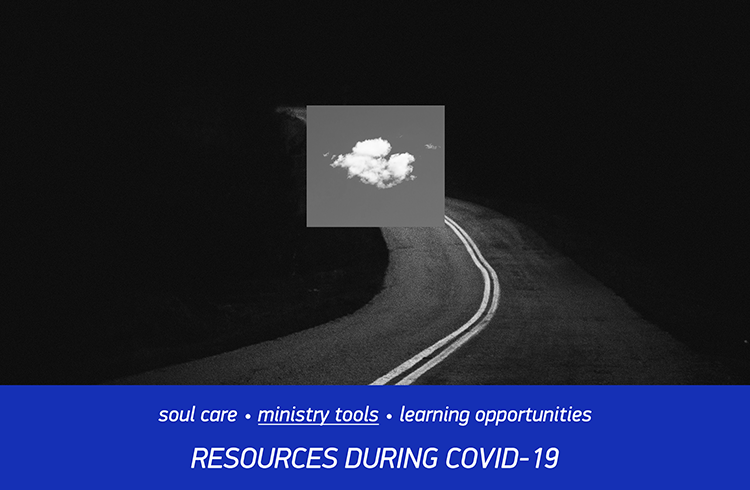
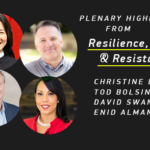
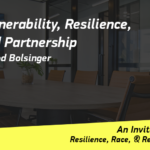
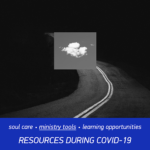

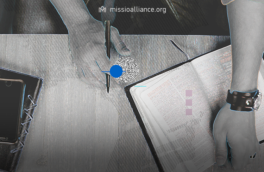
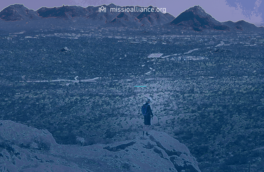
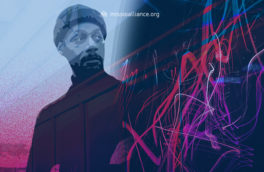


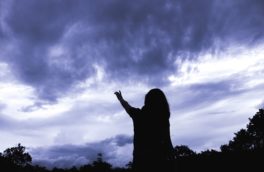



Missio Alliance Comment Policy
The Missio Alliance Writing Collectives exist as a ministry of writing to resource theological practitioners for mission. From our Leading Voices to our regular Writing Team and those invited to publish with us as Community Voices, we are creating a space for thoughtful engagement of critical issues and questions facing the North American Church in God’s mission. This sort of thoughtful engagement is something that we seek to engender not only in our publishing, but in conversations that unfold as a result in the comment section of our articles.
Unfortunately, because of the relational distance introduced by online communication, “thoughtful engagement” and “comment sections” seldom go hand in hand. At the same time, censorship of comments by those who disagree with points made by authors, whose anger or limited perspective taints their words, or who simply feel the need to express their own opinion on a topic without any meaningful engagement with the article or comment in question can mask an important window into the true state of Christian discourse. As such, Missio Alliance sets forth the following suggestions for those who wish to engage in conversation around our writing:
1. Seek to understand the author’s intent.
If you disagree with something the an author said, consider framing your response as, “I hear you as saying _________. Am I understanding you correctly? If so, here’s why I disagree. _____________.
2. Seek to make your own voice heard.
We deeply desire and value the voice and perspective of our readers. However you may react to an article we publish or a fellow commenter, we encourage you to set forth that reaction is the most constructive way possible. Use your voice and perspective to move conversation forward rather than shut it down.
3. Share your story.
One of our favorite tenants is that “an enemy is someone whose story we haven’t heard.” Very often disagreements and rants are the result of people talking past rather than to one another. Everyone’s perspective is intimately bound up with their own stories – their contexts and experiences. We encourage you to couch your comments in whatever aspect of your own story might help others understand where you are coming from.
In view of those suggestions for shaping conversation on our site and in an effort to curate a hospitable space of open conversation, Missio Alliance may delete comments and/or ban users who show no regard for constructive engagement, especially those whose comments are easily construed as trolling, threatening, or abusive.